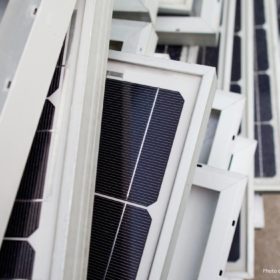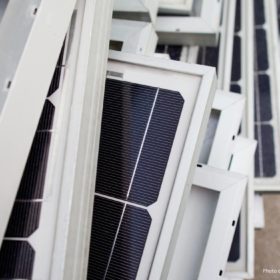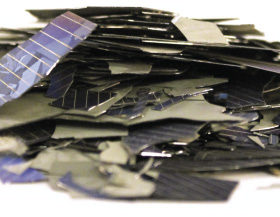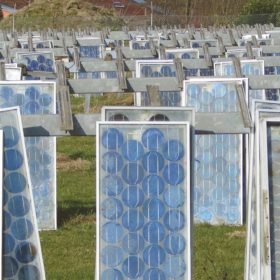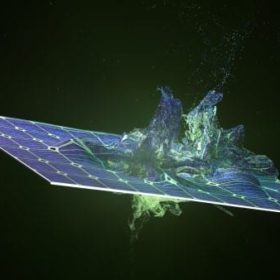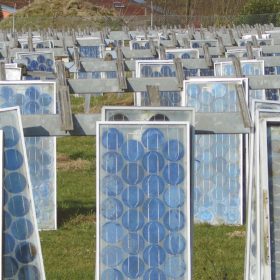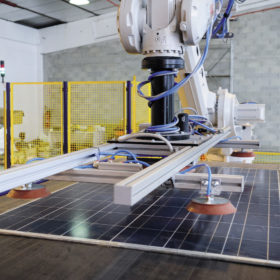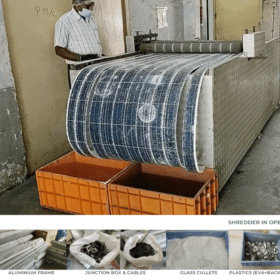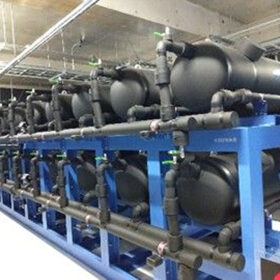A circular economy can support India’s push for clean energy and self-reliance
Recovering valuable raw materials from end-of-life solar panels and batteries presents a great opportunity for India to secure their future availability as the nation chases its ambitious renewable energy targets.
Recycling solar panels: Making the numbers work
NREL researchers said a profitable and sustainable solar panel recycling industry could establish itself by 2032. Here’s how the numbers work.
New solar addition may generate 21 kilotonnes of PV module waste by 2030
India’s solar capacity growth up to 2030 also means the generation of a significant mass of PV module waste due to early failures or damages during transportation, installation, and operation. The waste generation could be 21 kilotonnes assuming India’s cumulative installed PV capacity grows to 287.4 GW by 2030 from 40 GW in 2020. This doesn’t include end-of-life panel waste as PV systems installed between 2020-30 are assumed to have at least 30 years of lifetime.
Blockchain for PV module recycling
Next Energy and Marubeni are developing a blockchain tech for PV module inspection – with the support of the Japanese government – which they claim is able to provide data on a panel’s traceability and components as well as verifying that the data were not modified or tampered with.
Gravita Group enhances lead recycling capacity at Africa plant
The Jaipur-headquartered company carries out smelting of lead ore, lead concentrate, lead battery scrap, and aluminum scrap to produce secondary lead metal and aluminum ingots.
New process to recycle silicon, silver and glass from end-of-life PV panels
A €4.8 million EU-funded research project is aiming to develop a process that allows recovering all components of a photovoltaic module.
India could have 2.95bn tons of solar waste by 2047
Researchers led by the Indian Institute of Technology Delhi have projected the waste expected from end-of-life solar panels and related components. They assumed 347.5 GW of total installed solar generation capacity would be reached this decade. The academics said the waste would include critical metals worth around $645 trillion, 70% of which could be recovered.
Managing solar PV waste in India
A new report compares the European Union and Indian regulatory frameworks for managing end-of-life solar panels. It also assesses and analyses the PV waste market and processing capacities in India and shares recommendations for the Indian stakeholders.
The long read: Circular innovations
Slowly but surely, environmental concerns are making their way into mainstream thought throughout the PV industry. A look at recycling offers an example of this, with stakeholders trying to get ahead of the high volumes of end-of-life modules already on the horizon. pv magazine examines the technologies that will be needed, alongside policy and economic support, to keep the bulk of these modules out of landfill and ultimately to establish a circular economy for PV materials.
Establishing a solar module recycling system in India
Ankit Kapasi and Kishore Ganesan from SOFIES India are working on Solar Waste Action Plan (SWAP) project in India, which is looking to investigate both the technical and economic feasibility of a PV module recycling system in the country. The pilot has been funded by Signify Foundation and Doen Foundation. The team at Sofies is working closely with technology partner Poseidon Solar and has recently established the first PV recycling pilot plant in September 2020. The duo spoke to pv magazine about their plant’s techno-commercial feasibility and the Indian eco-system’s readiness for PV module recycling.
